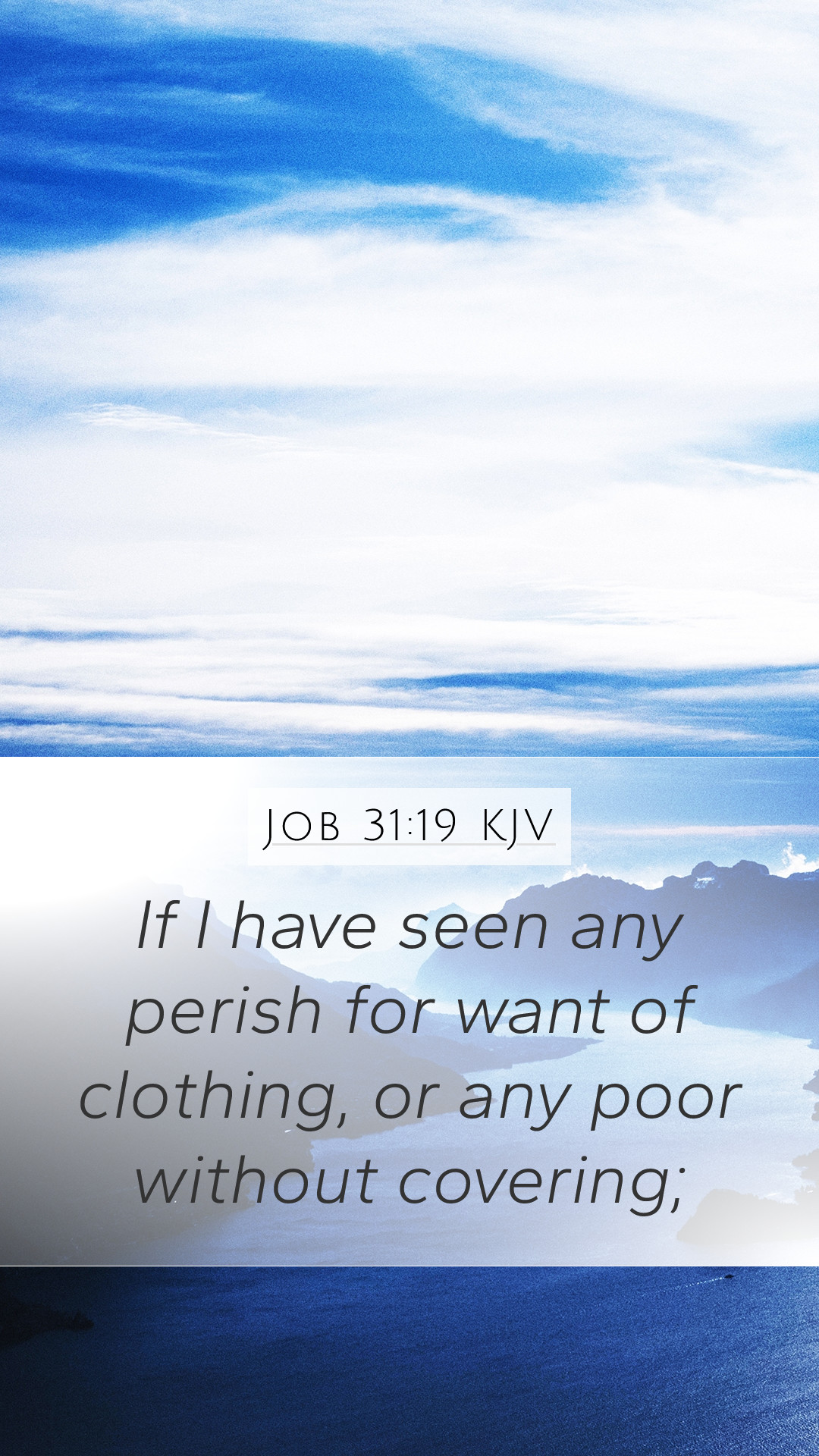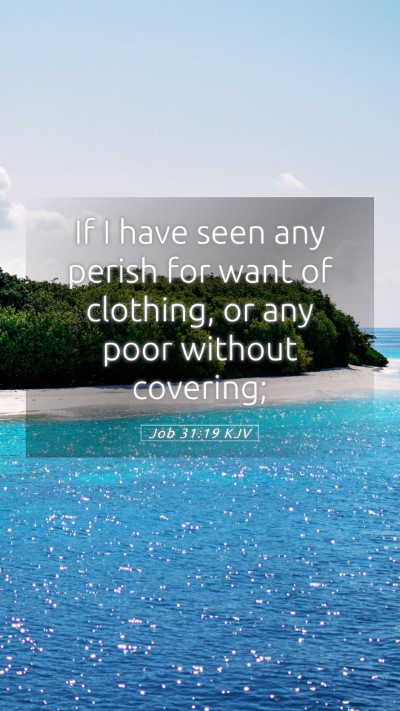Understanding Job 31:19
Job 31:19 states: "If I have seen anyone perish for lack of clothing, or any poor man without covering." This verse reflects Job's integrity and compassion, shedding light on his character and relationship with the oppressed.
Bible Verse Meanings and Interpretations
This scripture serves as a significant testament to the moral and ethical standards Job upheld during his prosperous days. He firmly believed in helping those in need, displaying his understanding of righteousness as a form of justice.
Insights from Matthew Henry
Matthew Henry emphasizes Job’s concern for the welfare of others. He explains that Job’s mention of those who perished for lack of clothing highlights the severity of neglecting the poor. The commentary suggests that Job’s righteousness was not merely a matter of personal integrity but was also intricately connected to social responsibility and compassion for the less fortunate.
Albert Barnes' Commentary
Albert Barnes underlines the importance of charity in the life of believers. He interprets Job’s lament as a reflection of a godly life that recognizes the plight of others. Barnes asserts that Job’s words exemplify the moral obligation to aid those in dire straits, reinforcing the biblical theme of care for the marginalized.
Adam Clarke's Analysis
Adam Clarke's analysis focuses on the socio-economic implications of Job's statement. Clarke posits that Job's inquiries regarding the impoverished indicate his awareness of social justice issues of his time. The reference to nakedness symbolizes a deeper human vulnerability, emphasizing the need for empathy and action against injustice.
In-Depth Scripture Analysis
Job 31:19 encapsulates the core values of justice and compassion that resonate throughout Scripture. The verse serves as a reflection of God’s character, who continually advocates for the oppressed. Job's life represents a blueprint for ethical living, intertwining prosperity with responsibility.
Biblical Exegesis
In the broader context of the Book of Job, this verse reveals Job's unwavering stance amidst suffering. It is a defense of his integrity, with Job essentially challenging the notion that wealth equates to righteousness. By invoking the image of the naked poor, Job illustrates a commitment to social ethics rooted in his understanding of God's expectations for humanity.
Application of Job 31:19 to Daily Life
For modern believers, Job 31:19 serves as a reminder of their responsibilities toward others, particularly the vulnerable in society. Understanding this verse encourages active participation in community welfare and fosters a spirit of giving and support.
Related Bible Cross References
- Proverbs 19:17: "He who is gracious to a poor man lends to the Lord, and He will repay him for his good deed."
- Matthew 25:40: "Truly I say to you, to the extent that you did it to one of these brothers of Mine, even the least of them, you did it to Me."
- Isaiah 58:6-7: "Is this not the fast which I choose, to loosen the bonds of wickedness, to undo the bands of the yoke, and to let the oppressed go free?"
- Luke 3:11: "And he answered and said to them, ‘The man who has two tunics is to share with him who has none; and he who has food is to do likewise.’"
Conclusion
In conclusion, Job 31:19 encapsulates profound lessons regarding societal duties and moral integrity. The interpretations drawn from public domain commentaries reveal how this verse speaks to the heart of biblical ethics, urging believers to extend compassion and assistance to those in need. As the faithful work towards honoring these values, they embody the essence of true righteousness as illustrated by Job's life and struggles.


